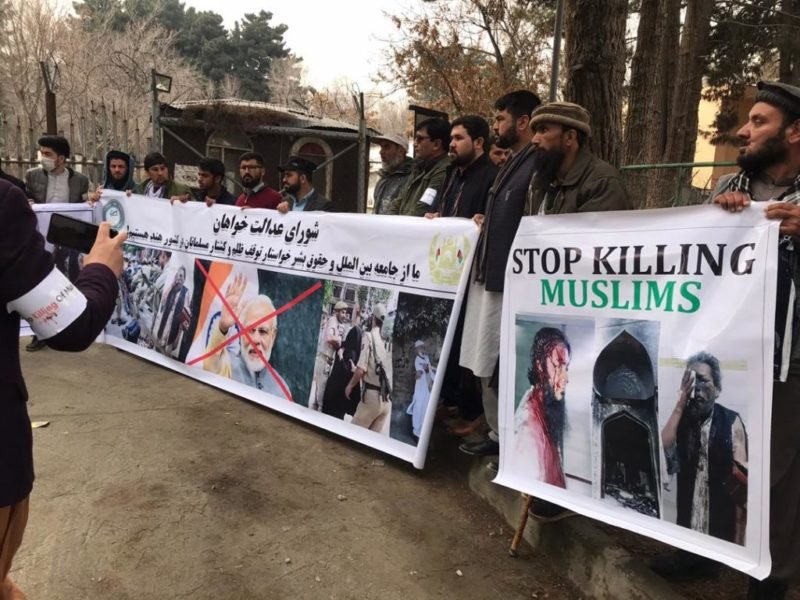Losing Allies? Anti-India protests in Afghanistan, Bangladesh & Iran

The wounds of Delhi riots are not yet healed and New Delhi has started facing backlashes in its friendly neighbourhood. Afghanistan & Bangladesh, which are considered as one of India’s closest ally in the region saw huge protests against the Indian government.
Bangladesh has already postponed the main inaugural programme to mark Sheikh Mujibur Rahman’s birth centenary to be held on March 17. Prime Minister Narendra Modi was scheduled to attend the event but due to the backlash and protests, it may get cancelled. Which is highly unfortunate and is much similar to the circumstances under which Japanese Prime Minister Shinzo Abe cancelled his visit for India’s North East region.
Protests in the countries like Afghanistan and Bangladesh who are India’s critical time allies can be seen as a questionable remark on the Indian government, especially, the communication system which failed in conveying the message in its original form.
At the time when Indian Foreign Secretary Harsh Shringla in his address at Bangladesh Institute for International Studies (BISS) said, “When we say “Neighbourhood First” policy, it is “Bangladesh First” for us. Any negative development should be seen as a challenge by the policymakers for the Eastern Neighbourhood.
How to see the protests in Kabul & Dhaka?
India shares very strategic relations with these countries and a calculated move towards the policymaking has been the key. Countries like Afghanistan & Bangladesh always stood side by side at the regional as well as international forums. Any issue of anti-India protests needs to be addressed by the highest government channels to the respective head of states.

As former Afghan President Hamid Karzai pointed that not only Hindus, Sikhs & Christians have been persecuted in Afghanistan, but Muslims too facing dire humanitarian consequences in the country. New Delhi needs to be extra careful in communicating the need for Citizenship Law to the Afghan government. Given Pakistan’s terrible record of interference in Afghan affairs for decades, many Afghans have historically and naturally gravitated towards India. And this will be a test for India to preserve the valuable and important individual-level connection with Afghan people. Especially, after the Doha Peace Deal, with the Taliban officially gaining ground in Afghanistan, India needs to consider this on the highest priority. Starting with a delegation-level talk with the current government can be a better way to value their concerns. As India too share the same concern and any miscommunication on Delhi riots must be addressed.
Iran – A Frenemy?
Iran is India’s gateway to Central Asia as well as a strategic partner to keep its rogue neighbour in check. However, the Islamic republic has always seen India on religious lines. Whether it’s on Kashmir or citizenship law, Iran has been raising its concern for a particular religion. India is land of various religions, which hosts religiously persecuted people from Iran as well. It stood for religious freedom from as early as the 8th century when Arabs invaded Persia.
Iranian government’s reaction to Kashmir and Delhi riots is not the same as Malaysia or Turkey. India has dealt Kuala Lumpur with a tough resistance, but a similar way cannot be possible for Iran. Knowing the strategic complications, Iran betraying its trust at several levels. Iran refrains speaking on the Uighur issue in China due to its trade interests and Beijing’s support for the Iranian issues. Policymakers in New Delhi needs to see this as one of the most complicated geopolitical game, where an Iron fist is needed to deal with Iran without hampering the geopolitical balance.


















